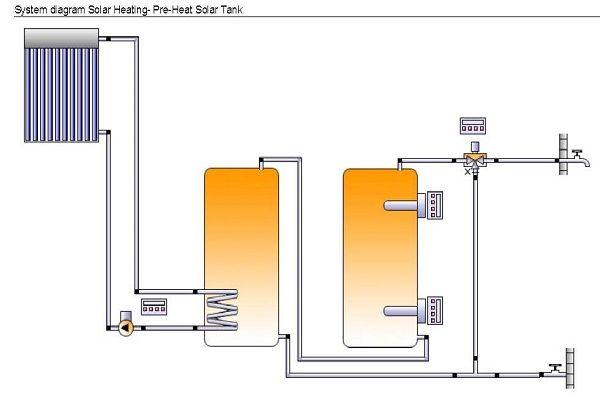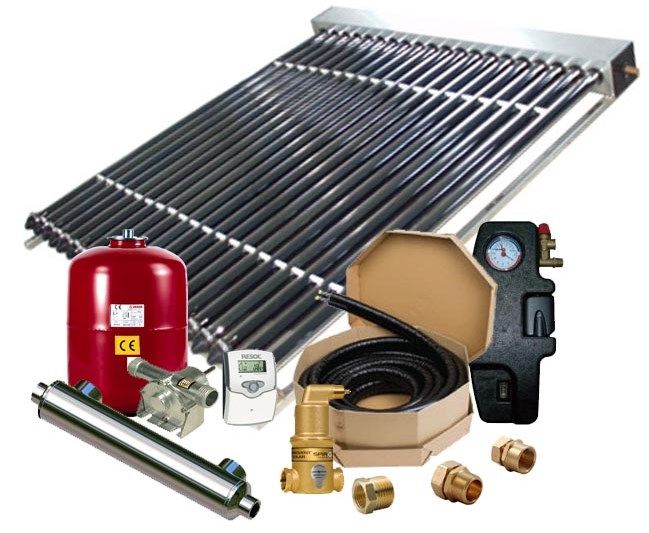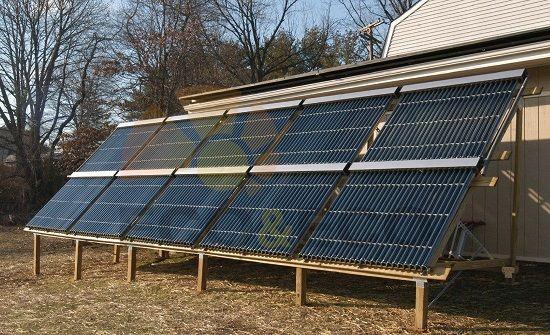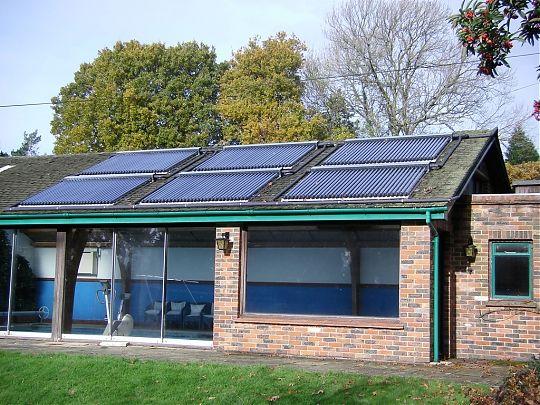Most consumers often think that solar water heaters
are available with hefty price tags. While solar water heating systems
are expensive to install upfront in the long run, they can save you more
on your monthly energy costs. As per different studies and researches,
the solar water heating systems actually reduce the energy bill.
These
kits come with solar tanks, ensuring ultimate level of dependability
and reliability than others. You can rely on them for the storage of hot
water for residential use. When you are unable to get enough solar
power for heating purposes, most tanks come with an auxiliary tank
available so that you can have warm water all the time.
Using the Right Solar Collectors –
Prior
to investing in a new solar water heater, you have to know about some
of the technical features that come along with the unit. One of the most
important parts is the solar collector.
However,
there are so many differences available in solar water heaters as
compared to their traditional counterparts. One such difference is the
solar collector. Generally, the storage tank is connected to the solar
collectors for heating water. Typically, residential solar water heating
systems use two types of solar collectors:
Evacuated Tube Solar Collectors –
These
solar collectors are used throughout the USA for both residential and
commercial applications and are covered with transparent glass rows.
They are the most efficient collectors available on the market.
Flat Plate Solar Collectors –
Glazed
flat plate solar collectors are used outside as they are insulated and
weatherproof boxes that come underneath glass or plastic covers. On the
other hand, unglazed flat plate collectors are not available with a
cover and are used for pool heating purposes.
How Do You Find the Right Solar Water Heater for Home?
When
you start shopping for your new solar water heating system, there are
so many things you should keep in mind. First of all, you have to know
whether you want to install an active or passive solar water heating
system and the type of circulation system that best fits your personal
needs.
While
installing traditional water heaters, you have to pay more attention to
size. If you want to buy a water heater that is too big or too small
for your home, you’ll end up wasting more energy. A solar water heater
can be a big investment for your home; but you have to understand this
product and the type of solutions available before investing in a new
unit.
With
the right information before your shopping, you can have a highly
durable, effective and long-lasting solar water heating system that can
in turn pay for itself and save you thousands on energy costs.
Bottom Line –
Solar
water heaters are the easiest ways to harness solar energy in a direct
way. Though the government in North America and worldwide have been
providing tax incentives, the solar water heating has garnered
popularity over the years.
If
you want to harness the solar energy, you should shop for easy to
install, pre-packaged solar water heaters from Solar Tubs. Our solar
water heating kits provide unparalleled level of safety and performance.
In
addition to, different commercial premises like hotels, Laundromats,
car washes and restaurants require hot water often and can help you save
more dollars ensuring a great ROI and less maintenance in the long run.
For more information about our products and their specifications,
please make a visit to our website at https://www.solartubs.com/.




